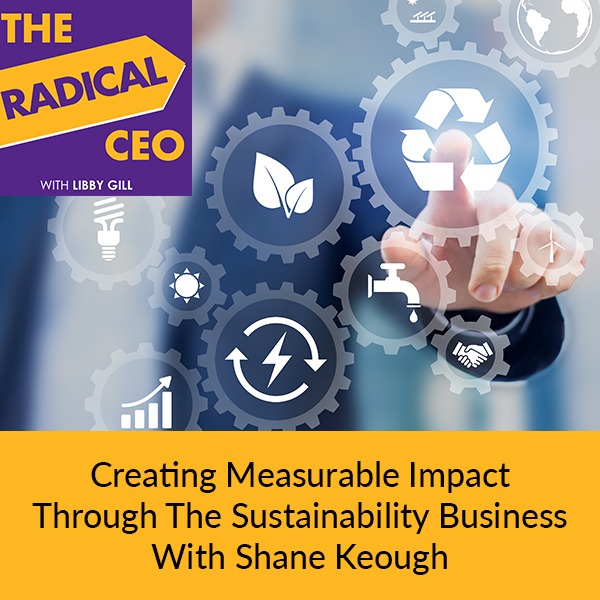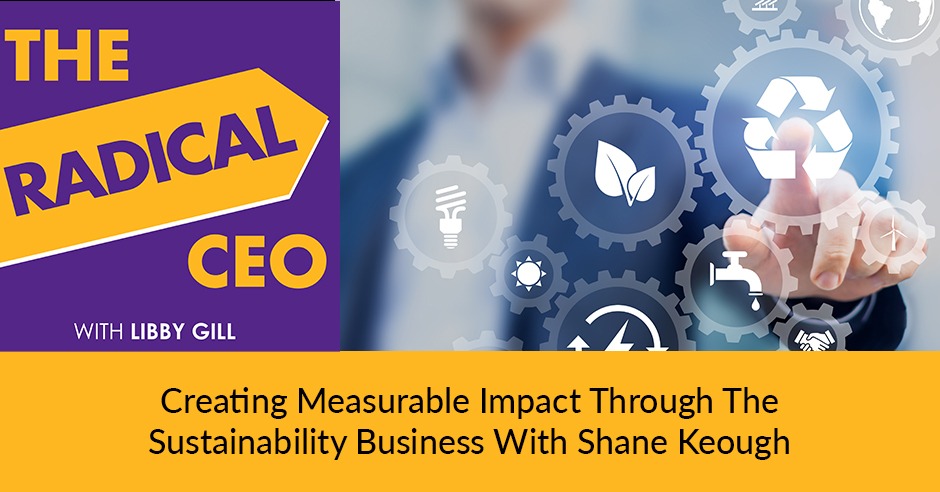
Our product is our impact. Making money is equally as important, but we have to be able to make measurable impact. This is especially true for B corporations – companies that qualify for meeting the balance between purpose and profit. On today’s show, Libby Gill is joined by Shane Keough, an ex-athlete and the CEO of a sustainability agency called WeGoFor2. Shane shares his background as a baseball player and the life intervention that took him in a completely different direction, leading him to run one of the most successful sustainability businesses today.
—
Watch the episode here:
Listen to the podcast here:
[smart_track_player url=”https://www.podetize.com/statsapi/www.podetize.com/wp-content/uploads/fileuploads/11-5b145ef137b51b3d1af0633e9305c43d/12/2019/e7ff28de2991308a7511a576da19769c.mp3″ title=”Creating Measurable Impact Through The Sustainability Business With Shane Keough”]
Creating Measurable Impact Through The Sustainability Business With Shane Keough
I’m glad you’re here because we’ve got a different kind of guest. He’s taken more U-turns and variations in his career than even I have. Shane Keough is with us. Shane is an ex-athlete who turns to be a CEO of a company called WeGoFor2. He’ll explain what that company name means. That is a B corp. If you don’t know what a B corporation is, it’s an interesting endeavor. They have to be certified as a B Corp and in order to do that, you’ve got to demonstrate a balance between purpose and profit. You’ve got to meet legal and certification requirements that say that you are meeting certain standards.
That’s not where he started. All the way back, his family business, the family operation was baseball. Shane’s grandfather was a scout for the St. Louis Cardinals. His dad was a pitcher for the Oakland A’s, California team and also for Japan’s Hanshin Tigers. Shane, himself, was a baseball player. As often or sometimes happens, life intervenes and takes you in a completely different direction which led Shane with a few twists and turns to this sustainability business that he runs now. Welcome, Shane Keough. Thanks for being here.
Thank you, Libby. I appreciate it. I’m excited to be here with you.
I have to say I have limited knowledge of sports like baseball, especially from the stands sitting there with a hot dog and a beer. What is WeGoFor2 mean? Why does it apply to this sustainability business?
WeGoFor2 was my nod to my past in sports, but also for the future of the health of our planet. It’s the two degrees climate change number that we want to focus on. Within sports, going for two is going that little bit extra, putting in a little bit more, you got to do one more set. A little bit extra to try to push the envelope wherein sustainability and environmental work, that two degrees Celsius is important. I believe that this united front where everybody’s involved because of the sustainability doesn’t see color. It doesn’t see how much money you make. It sees that you’re living being it wants to help make a difference. We’re excited to be here.
WeGoFor2 being the two degrees is how we can stem. I don’t know if we stop climate change, but it’s where we can start to bring it back in.
That’s the number that scientists universally from around the world have agreed upon. This is the threshold we want to stay with under or at least that’s our focus. Whether the planet cooperates because of its own little living organisms. What’s good for the planet isn’t always good for us as human beings species, but we try to make things better for ourselves and we realize the planet will take care of itself as well.
People don’t like an inconvenience, do they?
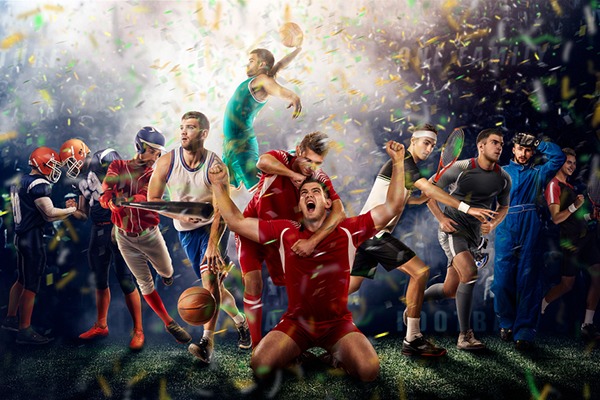
No. Polarization of topics but political things that can get in the way of sustainability where we’ve realized it’s about cutting costs, making new money, turning revenue out of a cost which is where sustainability is going. Social impact and involvement is how communities get involved on the local scale.
I want to ask you about the sustainability world. Before we get to that, I want to backtrack a little bit. Tell me about your baseball career and where that went and set you on a new path.
I played about for years, so you add that to about 86 years combined for the rest of my family. My grandfather played and scouted. My father played and scouted. My great uncle played professionally as well. I’ve been around the game of baseball for a long time, a group of locker rooms here in the States and in Japan. What’s great about sports is there are many great opportunities to interact with different people from around the country and around the world. Seeing your own country in a different way was cool.
I went to high school in Japan, so I had an opportunity there. Baseball is huge in Japan. It has been for a long time.
That was during the strike. My father went over there and play during the strike and loved it so much, he didn’t want to leave, so we stuck around.
How long were you there?
I was there from 1 to 4 years old, off six months at a time. We had our lives there during the season and we’d come back here. Mix and match with the family stateside and then get back for the next season. I had dual citizenship life growing up.
[bctt tweet=”What’s good for the planet isn’t always good for us as human beings.” username=”LibbyGill”]
I did the same in my teenage years when my dad was a Navy doctor and went to Japan. He’s a private practice for many years and then decided, “I’m going to do something new.” That’s what he did. I went back and forth. Tell our audiences, what happened to the baseball career because you would think that’s most kids dream job? What would take you out of that?
The great thing about professional sports is it’s a dream in two different ways. Getting to play on the field, wear the uniform, and perform in front of a large crowd. That’s great. Hitting the game-winner or hitting a walk-off at the buzzer, whatever all those great things we focus on growing up. It’s also great about the sports world is the social dynamic and the networking you get to do. People see you in a different way. You have access to different things that you aren’t accustomed to getting outside of professional sports. I was able to see those things growing up with my parents. Seeing the opportunities and the people that you meet from all these kinds of cool industries. One of the groups that we ended up working with was the waste industry and seeing how that interacted with sports.
Were these fans or owners?
A little bit of both. You have boosters in college, but in professional sports you have great fans who buy box tickets, who have season tickets, who donate money to the team’s foundation or help the guy who owns the stadium get the team in the beginning. That’s what my dad was into. When he got to Oakland was a bunch of the guys who ran the waste industry up there were fans of the team, loved the golf and love the hunt and do all these other things. He got to see and be around these people growing up.
You had to get out of sports because of an injury.
I had a pretty bad knee injury that I realized I was playing with for about a season once I was released and had the opportunity to get back into it. I started finding some things out about myself when I was in rehab, sitting in a bed and unable to move, trying to help other people because that’s what I always was used to. I was using the things I had at my disposal to try to bring others together. Being a sports guy, that’s always what I enjoyed.
It’s been heartbreaking though, then when you realize your career in that and that arena is over.
What made it easier for me was I took some time away. I did some other things. I got into independent acting. I did some things in the entertainment space. I started to work to go back to play. I got back in shape. I was working out. I was playing intramural type games and was reaching out to teams. I got to a point, I was like, “I’ve accomplished everything I need to do here. There’s something else for me.” The door was still open and I turned away and I thought, “I’m back in sports now in the avenue that I’m working on now instead of on the field.”
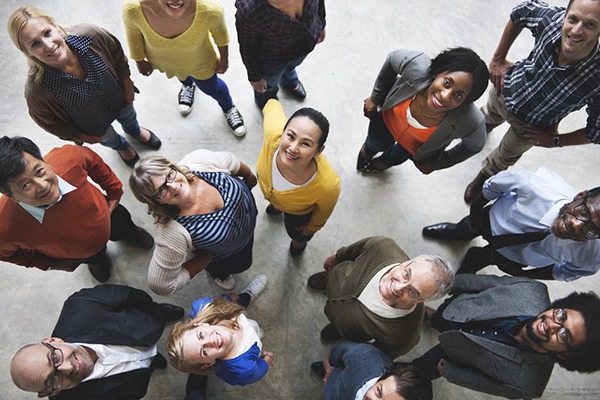
What was calling you when you could have gone either way? You could go and you met all these interesting people you saw big business. I’m sure those are the big fans in baseball. You could’ve gone the entertainment route, you could’ve gone back to sports. What pulled you in the direction that you went to?
I saw issues growing up during my playing time that once that hold of my life of professional baseball ended, my eyes were back up onto the world. What’s going on? What are people struggling with? You ask a few questions, you meet certain people at a certain time. You dive into the internet. Go into a little hermit crab stage and dive into this world of waste renewable energy, agriculture, marketing and how these things tie together in an overall perspective. When I thought about my life being less than trying to fix those things, I figured out baseball at that time. My life wasn’t for me anymore.
You mentioned the waste management industry. I think of that as the concrete block industry. It seems obscure and strange. What was it about that that grabbed you?
From a young age, you focus on the primary things. When you’re old enough to realize things are better than what you have so when you roll up to a golf club or the hunt club or something and you see, “Your dad has a nice truck or something.” All the guys who are there outside of that have the top of the top, they have 5 or 6 houses and multiple cars and all these things. You’re like, “What’s the difference?” You realize like, “They’re in the waste industry. They’re in renewable or alternative energy. They have aquifers and bottled water.”
You start seeing things from a different perspective like waste or vital resources and you see like, “Those are the people who owned the teams. Those are the people who write the checks for the players.” When you see that door open at that point, they were almost equally as far apart. Getting back into baseball and getting to the big leagues seemed as attainable as going down this other space and learning and being something different in the industry that may be needed. I have as much of a chance of doing that than I did going back to baseball. It seemed like a fun place to go.
Becoming a power broker, the kings of industry or a baseball player, both are pretty heavy and pretty hard. Was it the money that got you or was it the fact that there was a business and waste? What struck you?
Like in any other situation, you want to feel valued. You want to feel that your contribution to whether it’s a team or an idea is valuable. I was making comparisons to my value on the field, the potential of that or can I make a difference outside of the game? Maybe the people that watch the game. I can help a community instead of the 5,000 fans that were at the game that day. For me, I saw social issues and business issues. I feel I can do something here and that was enough. When you start asking questions and meeting the right people and you start getting that positive reaction, you’re like, “I’m on the summon.” You’re the entrepreneur that you are that drive that kind of itch, you got to see it through.
[bctt tweet=”Our product is our impact. ” username=”LibbyGill”]
Was the first step or what was the action that got you into business? Did somebody offer you a job?
I was looking for jobs. When I’m done playing baseball, there was no other plan. My entire life was, “Here’s the avenue for professional baseball. Here’s how you’re going to get there. This is what you’re going to do.” That was it. When it ended on July fourth, technically, we had a game on the third. We got back after midnight. It was the fourth, I got released that day and drove the six hours back home. For that situation, after that, it was like, “There’s more and I want to be a part of that.” There’s enough to do and I want to work with people I know. What my strengths are I know what I’m not good at. That’s good advice for anybody. Find your group, find the people that fill your blind spots and you could attain a lot.
People were encouraging you to take the step. Did you start your own business then? Did you decide I’m going to hang out a shingle and I’m going to figure this out?
Originally, I played around the golf when I was watching my grandparents’ house. My grandparents were going to the World Series because the Cardinals at that time were in the World Series. This was 2013. They have a local golf course. I went out and ended up linking up with this guy I’d never met before who was in the solar industry. He did a solar panel for parking structures and things like that. Three hours on the golf course, diving into solar energy and all these kinds of unique things, it opened up my mind to the possibilities. I found some opportunities using cool new-age technology where you can incinerate waste. It was in France and we found a guy that spoke English. I worked there as a college program. He ended up being one of my first partners and all these crazy things linked up. The pull on the thread on the sweater and it’ll look different. At first, we were very technologically focused. Its social marketing engagement-focused on using technology to promote these different things.
What kinds of things does the business do? What does WeGoFor2 do now? What services, activities, what’s your day to day customer? Who do you support?
Our big focus is with Minor League Baseball. Being a former player in that league, I understand how impactful they are to their communities. There are 160 teams. They play over 10,000 games a year. There are 43 million fans a year that go to the games. The cool stat is that 81% of the US population lives within driving distance of Minor League teams. We see it as a great place to instill some knowledge, create a narrative. People can then take it home with them and create the narrative that the confines of their home, but they’re picking it up at the game.
What’s the one-liner then? What is that narrative then? What do you want people to walk away with an understanding or knowing?
Our one-liner for WeGoFor2 is, “Our product is our impact.” Us making an actual measurable difference is the most important part. Making money is equally as important but we have to be able to make a measurable impact. We’re a program development group. We develop a program similar to a personal trainer who would develop your workout regimen. We give people an opportunity to take advantage of sustainability while not getting them bogged down by the struggle of getting acquainted. What sustainability even means and all the different compartments and makeup sustainability. We have a structure that we’re working on that right now.
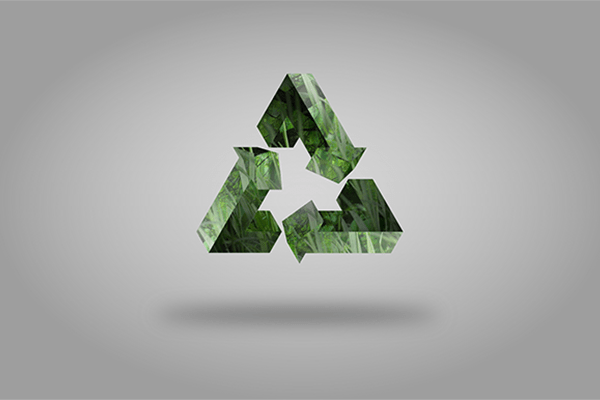
I love, “Our product is our impact.” That’s a great line and I’ve never heard that. I always tell my coaching clients when they hit on something, it’s like, “My cliché meter is going way over. I heard that a million times side.” I haven’t heard that a lot. That applies to people who do what I do. Professional speakers, people that are out there who think, “My results fuzzy or non-metric spaced or abstract.” No, it’s the impact that you make. That’s what you measure. You’re training, you’re developing programs, you’d go into a company and say, “Here’s what you guys can do to turn the needle.”
The initial stages are getting ready to get a suit fitted. Everyone has an initial onboarding process were, “What are your low hanging fruit? What are your trouble areas? What are the things you want to know more about? I can help you save water unless we know how much water you’re using to begin with? What consistent benchmarks do we see so we can work from there? What’s the problem with sustainability right now?” Most organizations walk in blindly are falling victim to what I call like the sex appeal of new technology, when it’s not always the best fit. That’s what we don’t want. We don’t want people to take a chance or take that sustainability step get burned and then be hesitant to jump back in again.
There’s a downside to them. You’re going to get less electricity or less water. Most of us don’t like that.
What ends up happening, especially with sports teams is they’re so focused on the community side first like, “Let’s get all of our fans to recycle and we’re going to do a waste audits. We’re going to have all of our stuff’s separated, all of our recyclables are going to be separated and ready to go. We’re going to take all the food waste and create a composting program. We’re going to hire interns and do all this stuff.” You go, “Great. You did all that. You did a whole season of top-notch stuff. Did you guys save money?” “No.” “Did you guys measure CO2 reductions, footprint, any of that?” “No.” We composted that but we don’t know what that looks like because the composting facility was 100 miles away so your footprint increased. That’s the idea.
It sounded good. There’s such a conflict now with people flying and flying more. There’s so much available. There was a lot about people flying to a climate summit. It’s hard to wrap your head around. I would imagine a lot of companies don’t even know what their footprints are. What do people at home, what can I do? I’m pretty self-aware. I recycle, but I’m probably like everybody else. I don’t know if I’m doing it right or if things are going to the places they’re supposed to go or there are things I’m overlooking that could be so simple. I do think that global is a lot harder than the household neighborhood community. Where do you start as an individual?
You’ve touched on it there at the end. Everyone looks at sustainability as this global initiative. We have to focus locally first because people don’t realize their local impact. What they’re doing locally does have a global impact. For example, you said you recycle at home. Do you know that? That’s the question people have to start asking. What I’m doing is what I think I’m doing? When you say you’re recycling for the most part, most likely you’re sorting because it’s now dependent on the waste hauler. You’re paying to move your trash. They have to recycle. They have to follow through on that chain or the last 10 or 15 years. They’ve gone to facilities, put all the plastics and the big squares. They send them overseas where they can either refine it or reduce it. They manipulate it and make it back into plastic toys or other things like that were now the situations have changed. Recycling is not done at home. It’s done by the next people that handle the waste after that. You don’t know and that’s the problem.
I’m recycling, but I’m not, I am sorting. I’m sorting trash versus the things that will be recycled versus food waste that should be composted. I know in some cities I go visit my stuff’s on in San Francisco and they’ve got the composting. It’s very much sorted. Some cities, there’s nothing. They don’t even have a recycle bin. We’re all over the map. What are some of the things you tell people you could do this to make a difference in your own home?
[bctt tweet=”What people don’t realize is that what they’re doing locally actually does have a global impact. ” username=”LibbyGill”]
The simple ones are straws, plastic bags, plastic water bottles, plastic reusable containers to take away. There’s all these different things. I always try to help people focus on one thing. One stream first. If you focus on one thing first, you can guarantee that reduction. For me, the simple one was water bottles. I’m an ex-athlete, I drink a lot of water. You go through 8 to 10 water bottles in a day. Switching to single-use was a big difference. My fiancé, on the other hand, plastic straws are her thing that she needs to focus on. We made use of the straws. We already had.
We’ve tried to clean them and reuse them, but who wants to do all that. Once those ran out, she tried the paper ones. They were too flimsy and didn’t like all that. She ended up liking some reusable plastic ones that they have, some metal or there is someone that’s like bamboo and stuff. That was her one thing. Grocery bags might be theirs. Even food wrappers, how many people pack lunches for work? How many people go through 8, 10, 12, 15 little Ziploc bags a week? Those are little things. When you start looking at one item at a time, you can make a bigger difference.
What are the lessons that you can share? What do you think the biggest thing that people trying to build a business or even building a career based on the experiences you’ve had? You’ve gone through a lot of change, you’ve taken some risks, and you’ve jumped into unexpected areas. What are some of the things you learned along the way that other people could benefit from?
You’ve got to know yourself. You have to know what makes you tick, what you enjoy. I like working with teams and interacting with people and hearing their specialties and putting that blend together. Some people, that’s the opposite of what they like. Some people work best in isolation or some people work best outside with music on or in their bathroom. Everyone has their own spice. First, get to know yourself a little bit. For me, I knew that, naturally, I like to offer my insight, offer my advice or offer a hand. Try to give me people a different perspective of something they look at the same angle every day. Don’t be scared of that.
Did that force time? I’m wondering if that time when you were in rehab, you were forced into that situation. Was the self-reflection and the stepping out of your day to day, was that helpful?
You spoke to the injury and there was an important moment within that injury period. Coming from professional sports, I had the luxury of great doctors. I realized, sitting in my room for three weeks while my knee got to a point where I could start moving around, how lucky I was. Not only to be in a comfortable space and be healing but to have top-notch doctors and rehabilitation services. On in bed while I was getting better, I wanted to start an online platform, a website where people could find doctors and medical professionals based on their actual skills and abilities, not their chances of marketing online. There’s a big difference. Never took the website out of beta stages. It was more than the creation of that and working with people and setting up the site and being like, “I don’t know if I enjoy this particular thing, but I enjoy working with people from different disciplines. I enjoy creating the opportunity for people to help themselves.” I continued to run with that. Like I said, pull the string. What are the two or three degrees of separation? You don’t know who somebody knows where somebody is going to turn you towards. That’s going to totally change things. You have to be comfortable with that and know yourself and things are going to be okay.
To add to that, Malcolm Gladwell’s Blink, he talks about the Law of Weak Ties. The people that are around you tend to know who and what you know because that’s your inner circle. Once you start to reach out beyond that, where your connections are not quite so strong, you branch out into all sorts of unexpected things that sound like what you did through the people that you met through baseball. You started going down those paths and talking to people. Something as simple as a golf game. I’m sure you relentlessly picking that guy’s brain.
Sometimes too, you have to understand that perspective is everything. We’ve all seen those kinds of little optical illusion things. I saw situations where waste or resources, you look it a different. You give people an opportunity to look at something they think they know from a different angle. I always joke a cup is for drinking, but if you turn it upside down you can put some on top of it. It has a totally different purpose. Don’t be scared to pull the string and see where it goes.

Shane, where can we find more about you? Is it WeGoFor2?
WeGoFor2.com is coming online shortly. You can find us at Gess.eco. Social media is @ShaneKeough. It’s pretty easy as well. I try to keep followers up to date on what we’re doing.
One last question for you. This is my radical thought question. If you could make some change in the world through one radical idea, what would you like to see happen?
The simple word is collaboration. In the simplest of things, I see that people working together regardless of their specialties, beliefs or whatever. People moving in the same direction is a good thing. Don’t be scared to mingle with people from different disciplines or different backgrounds. You’d be so surprised how helpful they’ll be in your life moving forward.
Clearly, you’ve touched a lot of lives and you’ve given a lot of help and support to others. That’s your gift. It’s collaboration. You grew up with teamwork. You’re still doing it now in a completely different stadium, a different ballpark. Thank you so much for being here. I really appreciate it.
No problem, Libby.
Pretty soon, you’ll be able to find, WeGoFor2.com and you can find Shane Keough online as well. Thanks, everybody. Have a great day.
Important Links:
- WeGoFor2
- Blink
- Gess.eco
- @ShaneKeough – Instagram
About Shane Keough
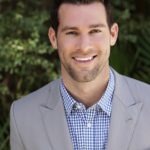 Shane’s roots in sports began long before he was born. His grandfather, a scout for the St. Louis Cardinals, and his father, a pitcher for the Oakland A’s and Japan’s Hansin Tigers, created an opportunity for most of Shane’s childhood to be spent around the game of baseball. In 2006 Shane followed in his family’s footsteps and signed with the Oakland Athletics. He played four seasons in their minor-league system as an outfielder.
Shane’s roots in sports began long before he was born. His grandfather, a scout for the St. Louis Cardinals, and his father, a pitcher for the Oakland A’s and Japan’s Hansin Tigers, created an opportunity for most of Shane’s childhood to be spent around the game of baseball. In 2006 Shane followed in his family’s footsteps and signed with the Oakland Athletics. He played four seasons in their minor-league system as an outfielder.
During the 2010 season Shane was diagnosed with a torn patellar tendon; an injury that would require surgery. During his rehabilitation Shane created his first company, Doc Discover; a web-platform for patients to locate the best medical professionals for their condition. Shane wanted to create a search engine that highlighted the qualifications of a medical professional; not just their ability to market online. Through Doc Discover Shane’s passion for helping others was born.
In 2013 Shane signed with LA Model Management; an opportunity that led him to star in two independent films. Although Shane enjoyed acting, it was the collaborative, team effort of skilled individuals working together towards a singular goal that began to inspire his next business venture.
In 2016 Shane founded Solar Waste Reprocessing, LLC; a company aimed to maximize the potential energy of municipal waste. The company’s focus soon shifted to agricultural waste; specifically recovering vital resources currently uncultivated, including soil-nutrients and water.
Currently, Shane is working in the fields of fuel production, power generation, waste disposal, resource recovery, food production, and mobile technology. Shane’s mission is to show the world that what is good for business can also be great for the environment. Current Shane is developing programs through his company WeGoFor2 that solve societal and environmental issues through profitable business ventures that harness the power of inclusion, collaboration, empowerment, and habit change.
